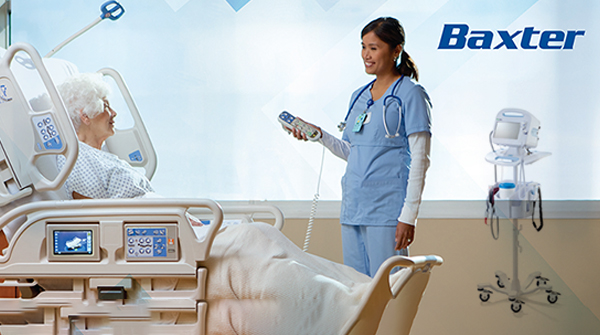Magnolia Medical Announces Partnership with Cardinal Health
14 November 2019
SEATTLE, Nov. 14, 2019 /PRNewswire/ -- Magnolia Medical Technologies announced today a collaboration with Cardinal Health focused on improving clinical and economic outcomes by reducing blood culture contamination and false-positive diagnostic results for sepsis.

Through this collaboration, Cardinal Health will offer the Steripath® Gen2 Initial Specimen Diversion Device® (ISDD®) to hospitals as a standalone product, and as part of customizable Best Practices Kits to address the long-standing problem of blood culture contamination and its downstream impact on patient safety, quality outcome measures and healthcare costs.
"Continued increasing awareness of the patient safety and economic impacts of blood culture contamination has accelerated the demand and adoption of Steripath in hospitals nationwide," said Greg Bullington, CEO of Magnolia Medical.
"We are thrilled to formalize our relationship with Cardinal Health to expand our distribution network and provide just-in-time logistics to meet this growing demand. This relationship significantly increases our sales and marketing reach and will drive further penetration of Steripath as a new standard of care for sepsis testing accuracy. The collective commitment of both of our organizations to improve patient safety, help hospitals achieve their formal quality measure goals while significantly reducing unnecessary hospital costs serves as a strong foundation for the success of this partnership," said Bullington.
Each year, tens of millions of patients in the U.S. require a blood culture test for diagnosis of sepsis and other bloodstream infections. On average, 3% of these tests are false-positive due to contamination.1 These false-positive results place over 1.2 million patients at risk of a misdiagnosis for sepsis.8 These patients are often treated with unnecessary antibiotics and spend, on average, two additional days in the hospital, increasing their risk of antibiotic-resistant infections, C. difficile and other antibiotic related complications.5,6
The Steripath Gen2 ISDD diverts and isolates the initial 1.5 to 2.0 mL of blood, the portion known to most likely contain contaminants7, demonstrating up to 92% reduction in blood culture contamination with sustained rates as low as 0.2% in the Emergency Department.2 It is the only technology of its kind backed by 14 clinical studies, including 5 publications in leading peer-reviewed medical journals.2,3,4,5,6
Steripath Gen2 stand-alone products, and the Steripath Best Practice Kits are both supported by a Magnolia money-back clinical performance guarantee of a minimum 50% sustained reduction in blood culture contamination. Best Practice Kits are further supported by a 0.5% contamination rate guarantee, giving customers confidence in achieving their patient care and cost saving goals.
"We are pleased Cardinal Health is integrating the Steripath product portfolio into their product offerings. The unique combination of the Steripath Gen2 ISDD clinical evidence, device performance guarantee and Cardinal Health's market presence will help drive further adoption of a new standard of care enabling sepsis testing accuracy and improving patient safety," said Bob Gerberich, CCO Magnolia Medical.
Magnolia Medical Technologies is a medical device company that develops, manufactures and markets innovative blood and bodily fluid collection devices to facilitate significant improvements in the accuracy, consistency and predictability of critical in vitro diagnostic (IVD) laboratory tests. Magnolia Medical invented and patented the initial specimen diversion technique (ISDT™) and device (ISDD®) for blood culture collection and contamination prevention. The Steripath ISDD has been shown in clinical studies published in leading peer-reviewed medical journals to significantly reduce blood culture contamination — helping healthcare providers decrease false-positive diagnostic results for sepsis and resulting unnecessary and inappropriate antibiotic use. This can reduce the risk of Clostridium difficile infections, multi-drug-resistant organisms and other antibiotic-related complications, hospital length of stay, associated healthcare-acquired infections and hospital-wide costs.1,2,3,4,5,6 The company has amassed an intellectual property portfolio protecting its technology and products, including more than 60 issued method, apparatus and design patents with more than 50 additional patent applications pending. For more information, visit www.magnolia-medical.com.
- Zwang, O., et al. (2006). "Analysis of Strategies to Improve Cost Effectiveness of Blood Cultures." Journal of Hospital Medicine, 1(5): 272-276.
- M. Rupp, et al; Reduction in Blood Culture Contamination Through Use of Initial Specimen Diversion Device. Clinical Infectious Diseases (August 2017)
- M. Bell, et al; Effectiveness of a Novel Specimen Collection System in Reducing Blood Culture Contamination Rates. Journal of Emergency Nursing (April 2018)
- F. Zimmerman, et al. Reducing blood culture contamination using an initial specimen diversion device. American Journal of Infection Control (January 2019)
- E. Skoglund, et al. Estimated clinical and economic impact through use of a novel blood collection device to reduce blood culture contamination in the emergency department: A cost-benefit analysis. J. Clin. Microbiol (January 2019)
- B. Geisler, et al. A Model to Evaluate the Impact of Hospital-Based Interventions Targeting False-Positive Blood Cultures on Economic and Clinical Outcomes. Journal of Hospital Infection (March 2019)
- Patton, R., et al. (2010). "Innovation for Reducing Blood Culture Contamination: Initial Specimen Diversion Technique." Journal of Clinical Microbiology, 48(12): 4501-4503.
- Richard G. Patton Blood Culture Contamination Definitions Can Obscure the Extent of Blood Culture Contamination: A New Standard for Satisfactory Institution Performance Is Needed. Infection Control & Hospital Epidemiology, Available on CJO 2016 doi:10.1017/ice.2016.30.
![]() View original content to download multimedia:http://www.prnewswire.com/news-releases/magnolia-medical-announces-partnership-with-cardinal-health-300958007.html
View original content to download multimedia:http://www.prnewswire.com/news-releases/magnolia-medical-announces-partnership-with-cardinal-health-300958007.html
SOURCE Magnolia Medical Technologies

Magnolia Medical Announces Partnership with Cardinal Health
15 November 2019
Magnolia Medical Technologies announced today a collaboration with Cardinal Health focused on improving clinical and economic outcomes by reducing blood culture contamination and false-positive dia

